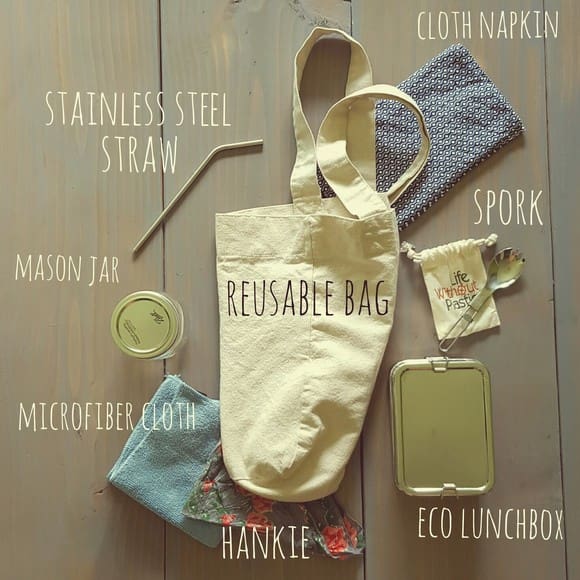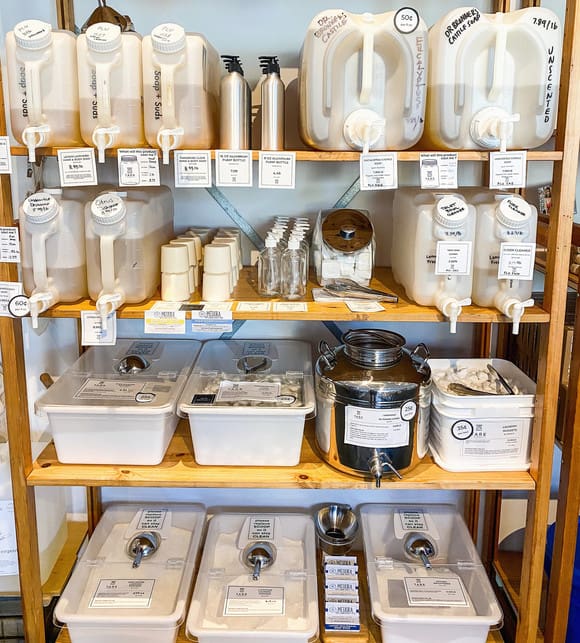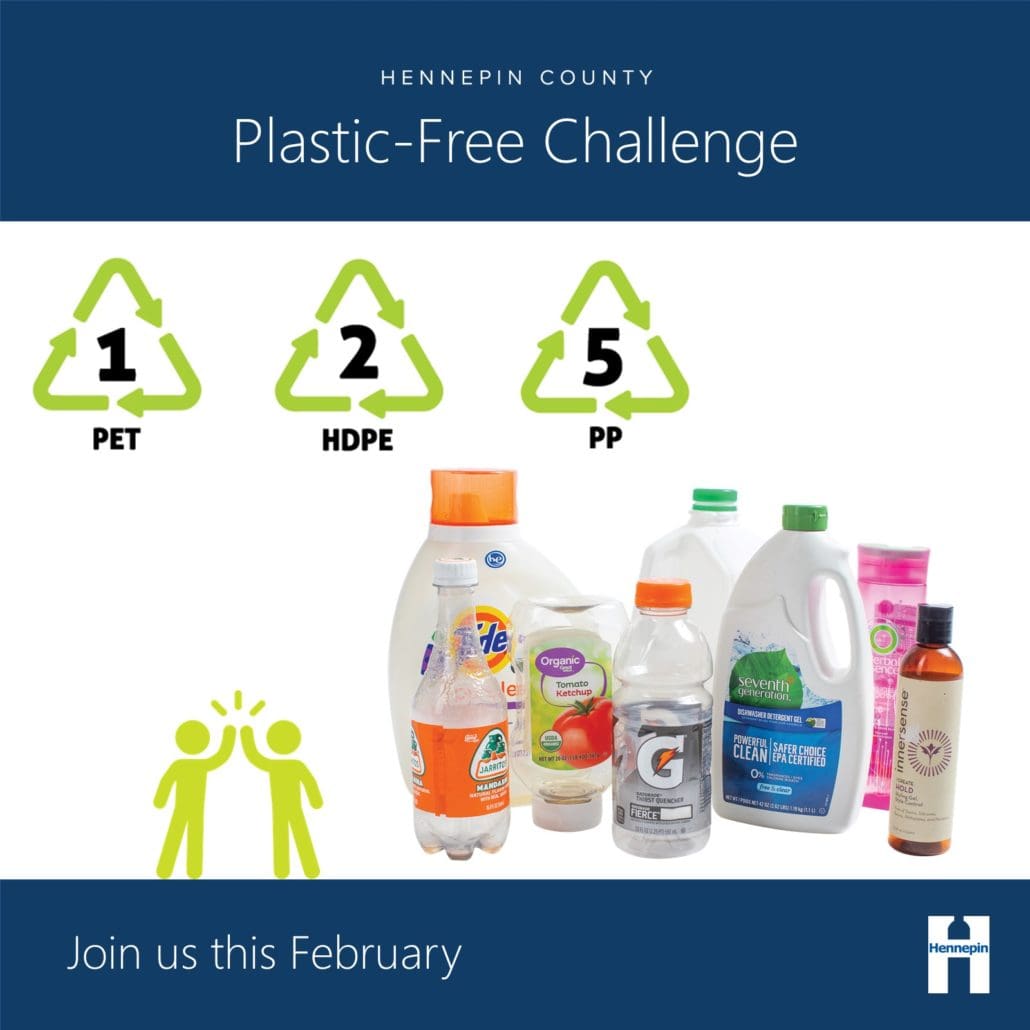Plastics can be a hassle – they create clutter and can be confusing to recycle – plus they contribute to litter, harm water and wildlife, and have largely unknown health impacts for us.
Fortunately, there’s a lot we can do to help create a plastic-free world, from learning more about plastic waste and recycling to making simple swaps to advocating for changes in your community and sharing your story with others. In February, the Impact Hub community committed to be part of the solution to reduce waste, protect water and wildlife, address climate change, and look after the health of ourselves and future generations by joining the Hennepin County Plastic-Free Challenge.
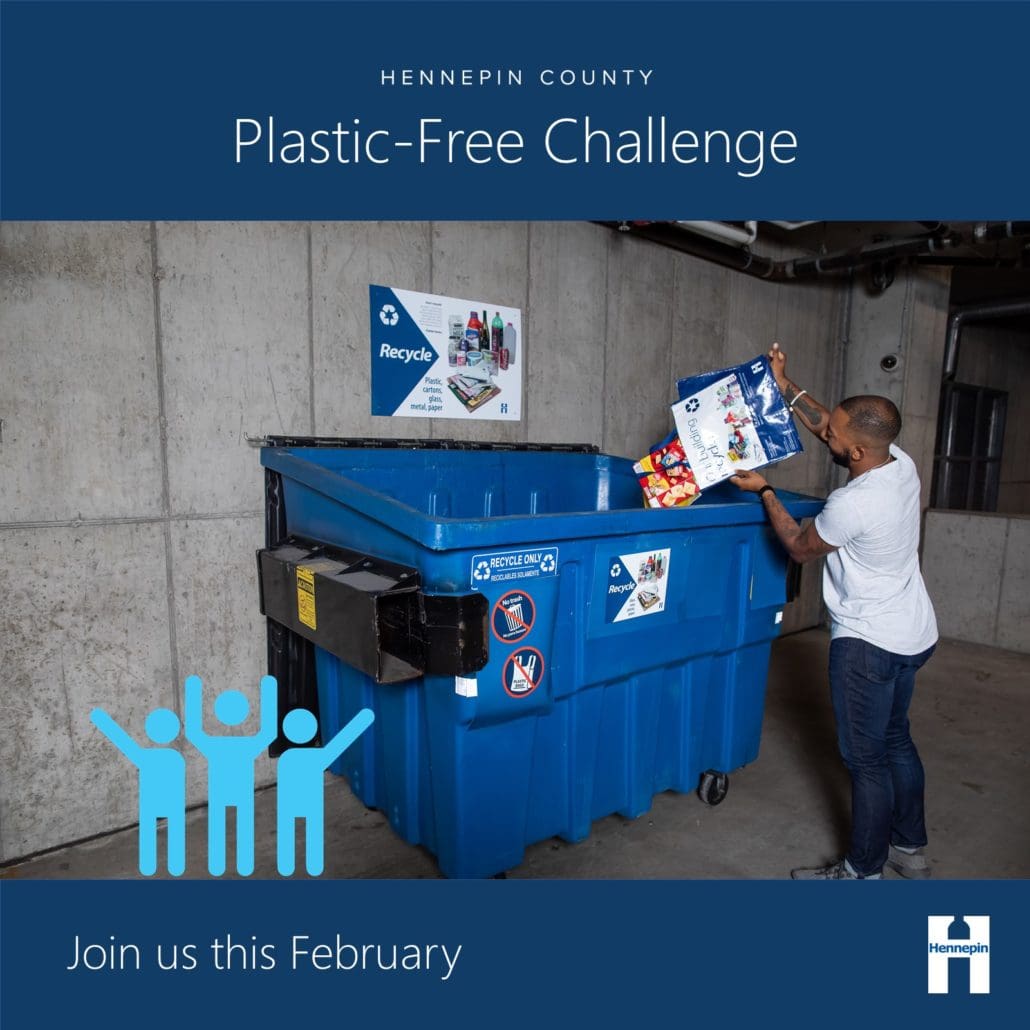
The problem with plastics
Plastics are problematic for many reasons.
Worldwide, plastic production has skyrocketed since the 1970s, and a lot of the growth has come in the form of packaging and single-use plastics. Most plastics are made from oil and gas – fossil fuels that contribute to climate change. About 4% to 8% of the world’s oil production is for plastics, and most plastics are thrown away after a single use.
Since packaging and single-use plastics are used for a short period of time and then discarded, they contribute significantly to the increasing amounts of plastic waste and litter. Although recycling can be a good option for managing certain plastic items, only a small percentage of plastic products are recycled, and many types of plastic are hard to recycle.
Unlike items made from natural materials like plants that can be composted and returned to the soil, plastics don’t go away. Instead, they break down into smaller pieces of plastic. These microplastic pieces are now found almost everywhere, including in our air, water, soil, and bodies. Plastics in the environment pollute our water, harm wildlife, and have largely unknown health impacts for us.
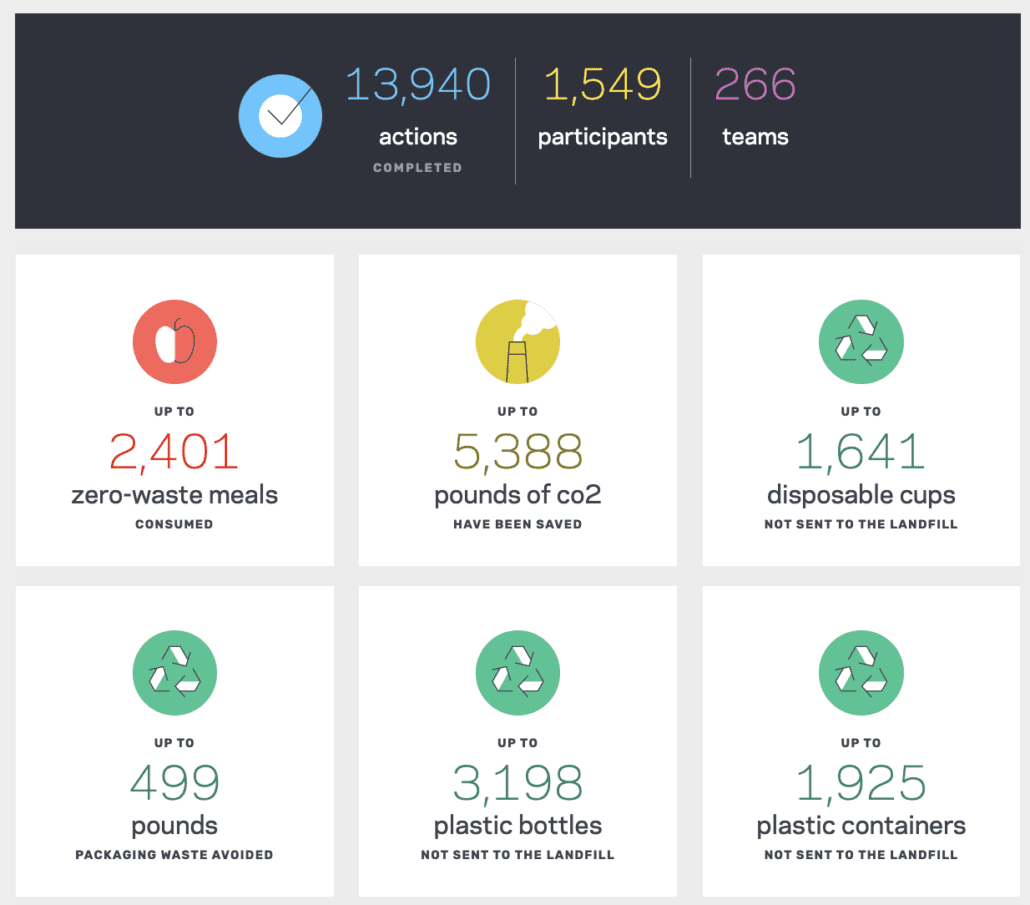
What we learned doing the Plastic Free Challenge
- Did you know there are seven types of plastics? The number 1-7 printed on a item tells you what type of plastic it is, but not if or how to recycle it. Plastics number 1, 2, and 5 are generally accepted in your recycling at home.
- Most plastics are made from oil and gas – fossil fuels that contribute to climate change.
- Microplastics shed from synthetic clothing and produced when large plastic items are broken down by the sun are harmful to fish and other aquatic animals. When we eat fish that have ingested microplastics, those harmful effects may be passed on to us.
- More plastic has been produced in the past ten years than in the century before!?
Tips to reduce your plastic waste
- Avoid toxic plastics (#3 – ex: cling wrap, #6 – ex: plastic cutlery, #7 – plastic packaging)
- Recyle correctly! recycling guide (PDF)
- Empty and rinse containers
- Put plastic caps on before recycling
- Don’t crush plastic items
- Don’t put plastic bags, large plastic items and single use plastic utensils and straws in the recycling bin
- Reduce plastic in your wardrobe by washing clothing correctly and repairing what you can. Try creating a capsule wardrobe and buy second hand.
- Change the way you shop!
- Buy unpackaged produce
- Shop the bulk bins
- Ditch plastic wrap and plastic baggies
- Check out zero-waste stores like Tare Market or Zero(ish) Co.,
- Purchase alternative toothpaste, plastic-free deodorant and low-wast hair care products
- Change the way you eat out!
- Use a reusable mug or cup
- Skip the straw
- Assemble a zero-waste kit (see photo)
- Learn more about programs like Forever Ware and MNimize
Support the sharing and reuse economy by joining the Minnesota Tool Library, The Lending Closet, or Minneapolis Toy Library
